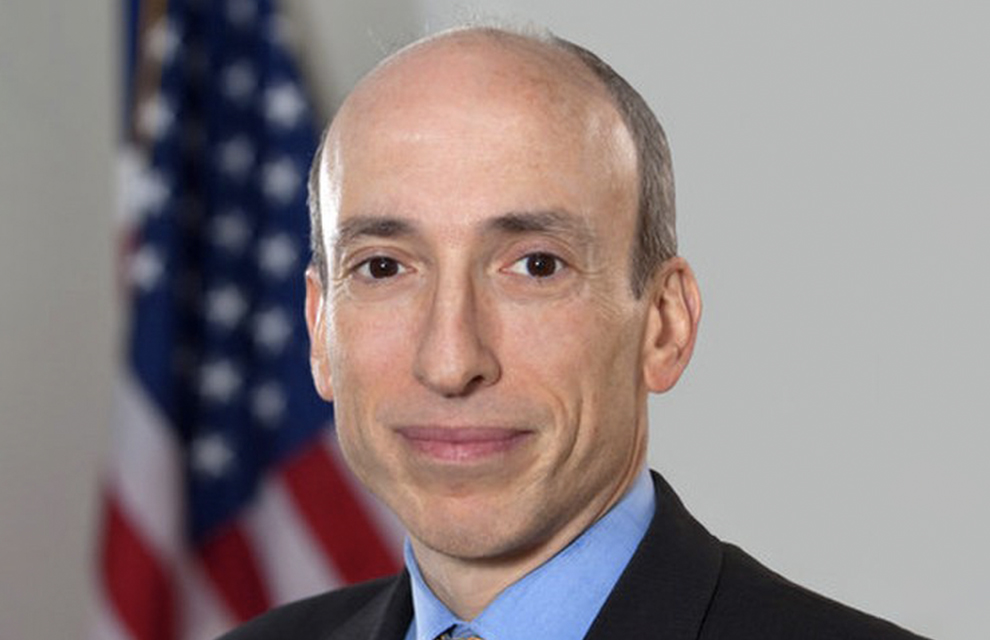The House Financial Services Committee will hold its final hearing today on the GameStop saga where Gary Gensler, chairman of the US Securities and Exchange Commission (SEC), will argue that while entities such as GameStop, Melvin Capital, Reddit, and Robinhood have garnered a significant amount of attention, the policy issues raised by this winter’s volatility go beyond those companies.
Gensler was confirmed by the US Senate as the new chair of the SEC in April after a 53-45 vote.
In January, Robinhood had to restrict trading in stocks including Gamestop because of the volatility caused by retail traders. Experts say that these traders were determined to squeeze hedge funds that have short positions in the companies.
Gensler suggests these events are part of a larger story about the intersection of finance and technology, and these forces have had a symbiotic relationship since antiquity.
“One thing that I’ve come to believe is that technology can bring greater access to our capital markets. Our central question is this: When new technologies come along and change the face of finance, how do we continue to achieve our core public policy goals and ensure that markets work for everyday investors?” Gensler commented.
For the hearing, Gensler will highlight seven factors that were at play during the volatility seen earlier this year. This includes gamification and user experience; payment for order flow; equity market structure; short selling and market transparency; social media; market ‘plumbing’: clearance and settlement; and system-wide risks.
With regard to the settlement cycle, Gensler says: “I’m reminded of an old saying in the markets: ‘Time equals risk’. These events have prompted questions about whether we can lower risk by shortening the time of our settlement cycles.”
Gensler affirms: “The longer it takes for a trade to settle, the more risk our markets assume. The good news is, though it will take a lot of work by many parties, we now have the technology to further shorten the settlement cycles, not only to the settlement cycle we had a century ago, but even to same-day settlement (T-0 or ‘T-evening’).”
He suggests shortening the standard settlement cycle could reduce costs and risks in the markets.
“I’ve directed the SEC staff to put together a draft proposal for the commission’s review on this topic,” he adds.
Similarly, back in February, Vladimir Tenev, CEO of Robinhood showed his interest in pushing for the settlement infrastructure to be modernised.
Tenev suggested that solving the problem for the system will require “systemic change” and fixing of the “antiquated settlement structure”.
Meanwhile, Michael Bodson, CEO of the Depository Trust & Clearing Corporation (DTCC), is also set to weigh in on settlement in the hearing.
Last week, DTCC announced it had collaborated with the Securities Industry and Financial Markets Association, and the Investment Company Institute to accelerate the move of the US securities settlement cycle to T+1.
In the past, DTCC has worked with a cross-section of clients and stakeholders to explore the benefits of moving to T+1 or T+0.
DTCC is also exploring an integrated settlement model with clearing members that could introduce more settlement efficiencies between National Securities Clearing Corporation (NSCC) and the Depository Trust Company (DTC) to reduce margin demands at NSCC.
During the hearing, Bodson will explain that without clearing, investors could not trade in the accessible, transparent and highly efficient securities markets that they do today.
“DTCC continues to promote further improvements and efficiencies, such as acceleration of the current T+2 settlement cycle, that will ultimately benefit clearing members and securities investors alike. We look forward to engaging with our clearing members and the broader industry on this important initiative,” he concludes.
The most recent GameStop hearing was held in March, and focused on the market volatility involving GameStop and other stocks to hear from experts and investor advocates regarding regulatory gaps illuminated by these events, and to assess possible legislative steps to protect investors.
This week’s hearing will also be an opportunity for committee members to present their policy recommendations to the SEC for rule changes to mitigate the risks similar future events may pose to investors and market stability.



